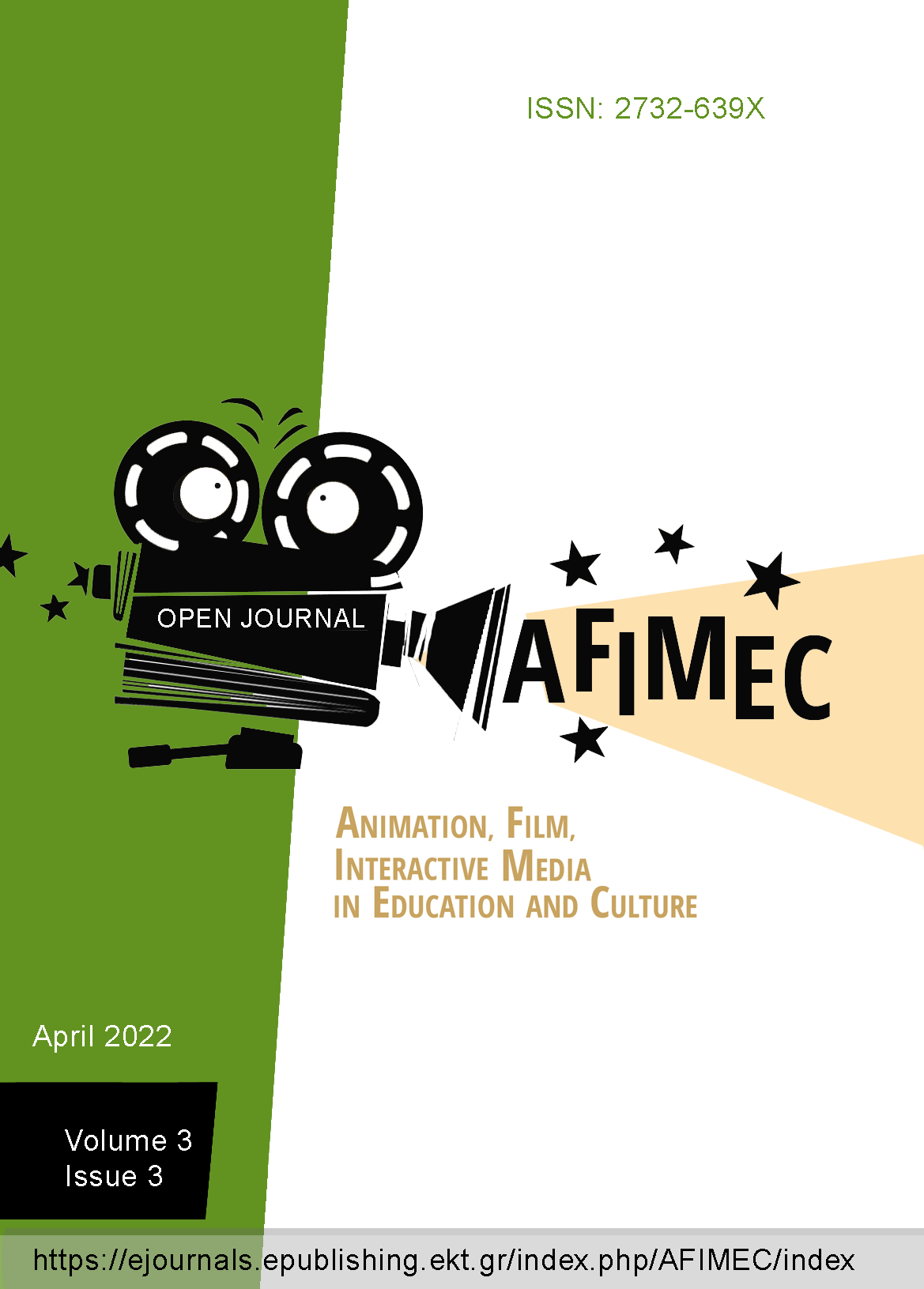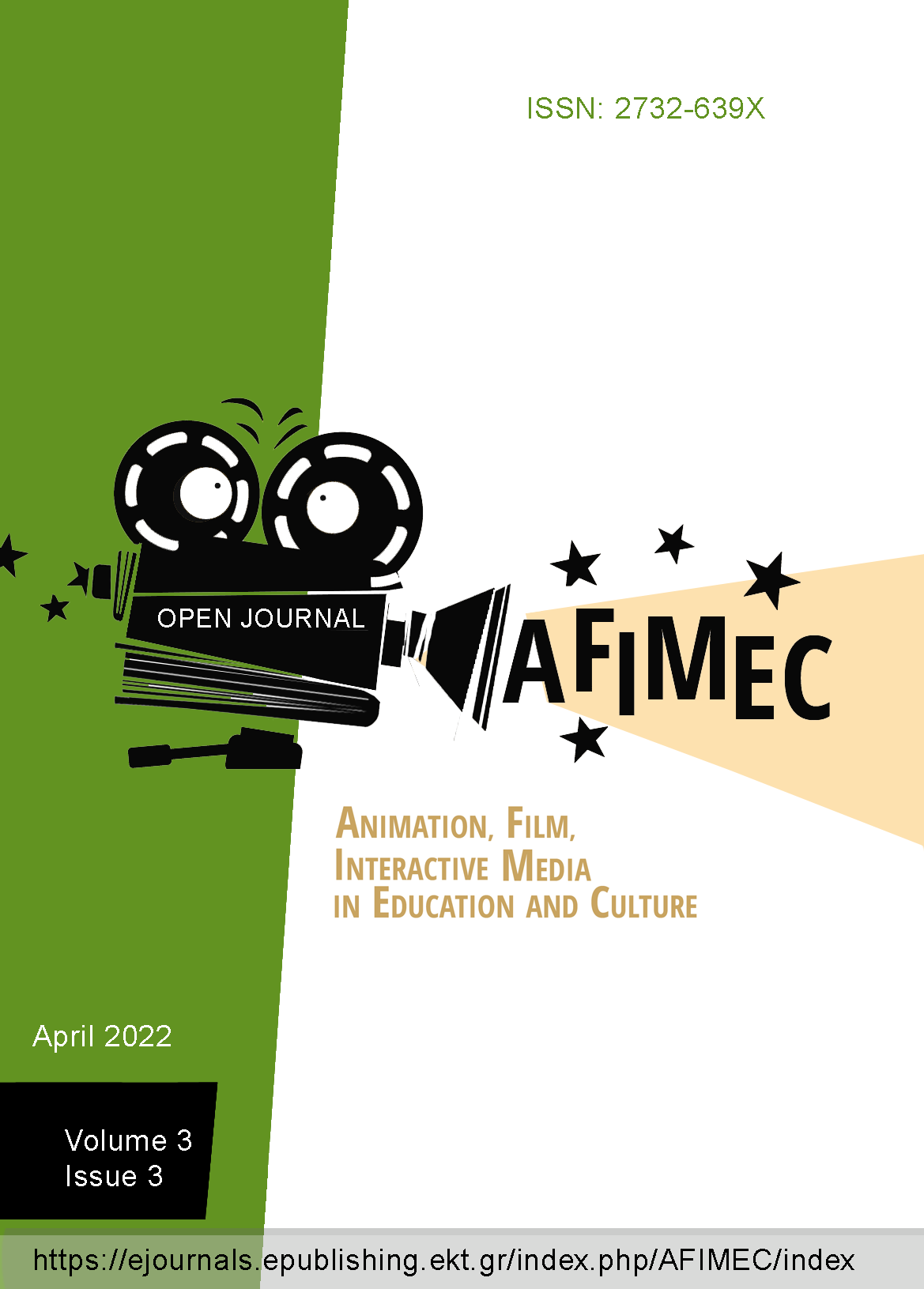Ψηφιακή εφαρμογή μικτής πραγματικότητας - «Ντολτσό: Μια Παραδοσιακή Συνοικία της Καστοριάς στο Πέρασμα του Χρόνου»

Abstract
“Doltso: A Traditional District of Kastoria in the Passage of Time” is a location-based digital application of mixed reality that is used throughout the homonymous educational programme of the Environment and Sustainability Education Centre of Kastoria, which focuses on the preservation and sustainable management of cultural heritage. The present study aims to depict the learning objectives, the thematic directions, the design criteria and the technical features of the digital application, as well as to present indicative results of a quantitative research which was carried out for its evaluation during the school year 2021-2022. Primary data were collected through questionnaires from a sample of 158 secondary school students of Kastoria Regional Unit, while methods of descriptive statistics were used for data processing. According to the results of the research, the digital application is positively evaluated by students in terms of its functionality, ease of use, appropriateness of the information contained, the pleasure and motivation it provides to users for cooperation and future reuse. Similar are the assessments of the creators and the teachers that used the application along with their students, who also note its essential contribution to strengthening the active participation of students throughout the educational activity, to the achievement of learning objectives and to the communication of issues concerning the sustainable management of local cultural heritage.
Article Details
- How to Cite
-
Γρηγορίου Μ., Ατζέμη Α., Βασιλείου Α., Λιόλιου Κ., Ευαγγέλου Α., & Κλεφτοδήμος Α. (2022). Ψηφιακή εφαρμογή μικτής πραγματικότητας - «Ντολτσό: Μια Παραδοσιακή Συνοικία της Καστοριάς στο Πέρασμα του Χρόνου». Open Journal of Animation, Film and Interactive Media in Education and Culture [AFIMinEC], 3(3). https://doi.org/10.12681/afiinmec.31737
- Section
- Articles
- Οι Συγγραφείς διατηρούν τα Πνευματικά Δικαιώματα και χορηγούν στο περιοδικό το δικαίωμα της πρώτης δημοσίευσης ενώ ταυτόχρονα τα πνευματικά δικαιώματα της εργασίας προστατεύονται σύμφωνα με την Creative Commons Attribution License που επιτρέπει σε τρίτους - αποδέκτες της άδειας να χρησιμοποιούν την εργασία όπως θέλουν με την προϋπόθεση της διατήρησης των διατυπώσεων που προβλέπονται στην άδεια σχετικά με την αναφορά στον αρχικό δημιουργό και την αρχική δημοσίευση σε αυτό το περιοδικό.
- Οι Συγγραφείς μπορούν να συνάπτουν ξεχωριστές, και πρόσθετες συμβάσεις και συμφωνίες για την μη αποκλειστική διανομή της εργασίας όπως δημοσιεύτηκε στο περιοδικό αυτό (π.χ. κατάθεση σε ένα ακαδημαϊκό καταθετήριο ή δημοσίευση σε ένα βιβλίο), με την προϋπόθεση της αναγνώρισης και την αναφοράς της πρώτης δημοσίευσης σε αυτό το περιοδικό.



